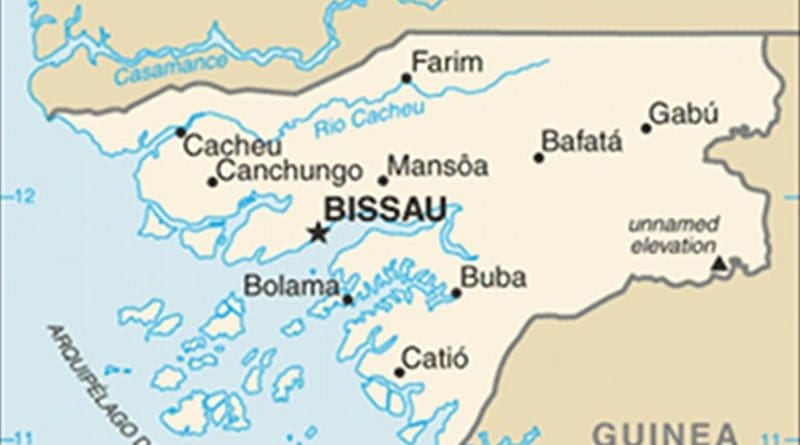New Political Crisis In Guinea-Bissau: Won’t Be The Last – Analysis
By IPRIS
By Paulo Gorjão*
Following a long-awaited return to democratic normality, after the April 2014 electoral processes, Guinea- Bissau is once again experiencing a political and institutional crisis that threatens to undermine the positive developments of the last 15 months.
This umpteenth crisis — which fortunately did not spread to the Armed Forces, at least for now — was not surprising at all. The deterioration in political ties between the President and the Prime-Minister has long been a public secret, both inside and outside of Guinea-Bissau. Even so, the international community — Africa Union, CPLP, ECOWAS, European Union and the UN — wrongly thought that President José Mário Vaz and Prime-Minister Domingos Simões Pereira would be capable of avoiding an institutional crisis. It isn’t clear what will be the end result of this new crisis. Following the sacking of Domingos Simões Pereira, José Mário Vaz appointed Baciro Djá as Prime-Minister, but without the consent of the PAIGC, the political party with the largest parliamentary representation. In response, Parliament recommended Baciro Djá’s dismissal and called on the Supreme Court of Justice (SCJ) to assess the constitutional validity of his appointment.
In the event that the SCJ declares Djá’s appointment as unconstitutional, the political and institutional crisis will be further aggravated, placing the President in an almost unsustainable position. On the other hand, if deemed constitutionally valid it won’t necessarily represent the end of the dispute. The crisis may return to the political stage and the government’s destiny — which is of presidential initiative — will be in the hands of Domingos Simões Pereira, the PAIGC and the Parliament.
The inescapable lesson is that, in the absence of dialogue and without one of the parties ceding ground, the political crisis may be far from reaching its epilogue. The last thing Guinea-Bissau needs is a political and institutional stalemate with no end in sight that would be capable of placing the international community’s financial support in jeopardy. In March this year, the international donor conference — co-organized by Domingos Simões Pereira’s government, the EU and UNDP — resulted in the promise of more than €1 billion to Guinea-Bissau.
This donation aims at financing several projects of the country’s operational and strategic plan over the next 10 years. Naturally, these crucial funds won’t make their way without the international community being first assured that institutional and governance stability are dully guaranteed in the country. This is why the political stalemate has to be overcome as soon as possible. Indeed, if he so wishes, Miguel Trovoada, the Special Representative of the United Nations Secretary-General in Guinea-Bissau, can be the mediator between both parties.
However, let there be no illusions: it is the Bissauan political actors who, through dialogue and negotiation, have to find a solution that respects the Constitution. Otherwise, peace and stability, good democratic governance and socioeconomic progress will once again turnout to be the collateral damage in the struggle for access to power and control.
António Patriota, the Permanent Representative of Brazil to the United Nations and chair of the UN Peacebuilding Commission, has remarked that the United Nations stood for “better delineating the spheres of competence of the President and the Prime Minister, so as to avoid it from becoming a source of instability and fragility in an otherwise promising environment”.1 In a way, Patriota hit the nail on the head in identifying the origin of the problem, but then limiting himself to recommend only an aspirin. In other words, Patriota recognized there is a problem of constitutional nature, yet he failed to take the logical step of recognizing that the semi-presidential system is a structural hotbed of instability in Guinea-Bissau. There are certainly many reasons behind the failure to settle political differences through dialogue, namely of cultural and sociological nature.
However, from the moment a semi-presidential system establishes two democratically legitimized power centers in an adverse context such as in Guinea-Bissau, it gives free rein for political conflict to be potentiated and exacerbated. In the absence of a consolidated democratic regime, political conflict between the President and the Prime-Minister — arising from the power struggle for access and control of State resources — is virtually inevitable.2
Sadly, the logical conclusion we can draw from the currently unfolding institutional and political crisis is that it won’t be the last.
About the author:
*Paulo Gorjão, research at Portuguese Institute of International Relations and Security (IPRIS)
Source:
This article was published by IPRIS as IPRIS Viewpoints 179 (PDF)

